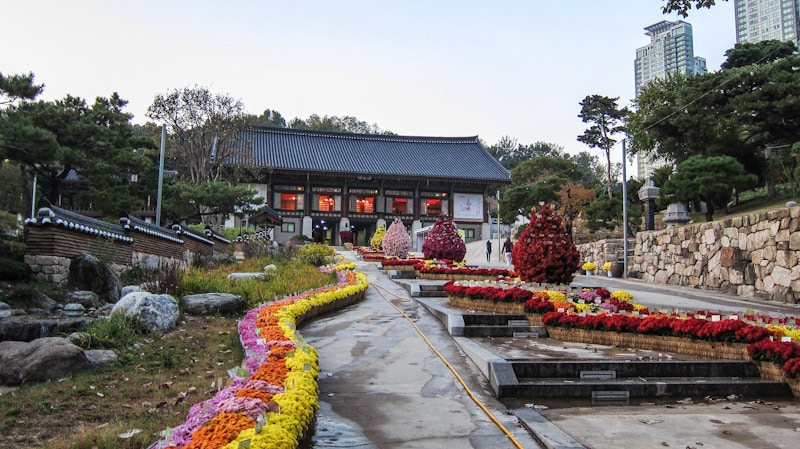
Bongeunsa Temple is a Buddhist temple that dates back to 794 located south of the Hangang River and just north of the Starfield COEX Mall in Gangnam-gu. It was originally known as Gyeonseongsa when first built. This was during the rule of King Wonseong of Silla. Its location was 1 kilometer (0.6 miles) southwest of its current location.
Gyeonseongsa was refurbished in 1498 by Queen Jeonghyeon. At this time, it was renamed as Bongeunsa.
The temple was then moved to its current location during the reign of Myeongjong (1545-1567).
During the Joseon Dynasty, the government oppressed Buddhism and supported Confucianism. With the help of Queen Munjeong and Monk Bo-wu, Buddhism was revived in Korea.
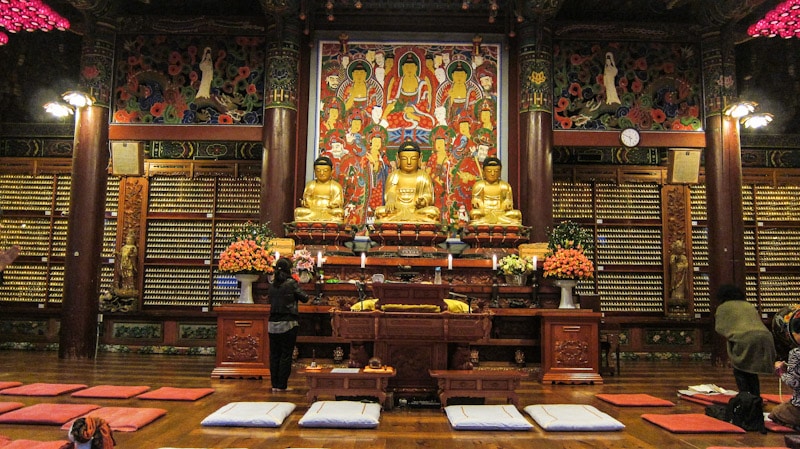
Around 1550 Bongeunsa was expanded and became the head monastery of the national Jogye Seon Order. It also was the main Korean Buddhist Zen temple from 1551 to 1936.
In 1939, and again during the Korean War (1950-1953), most of the temple buildings were heavily damaged or destroyed by fire. Between 1941 and 1982, repairs and renovations have been done to try to restore it to its past glory.
The highlight of the temple though is a 28 meter (91 foot) stone statue of Maitreya, the Future Buddha. This statue is one of the tallest stone statues in the country.
The oldest remaining building is a library that was constructed in 1856. The library contains Flower Garland Sutra woodblock carvings and 3,479 Buddhist scriptures including the works of Kim Jeong-hee.
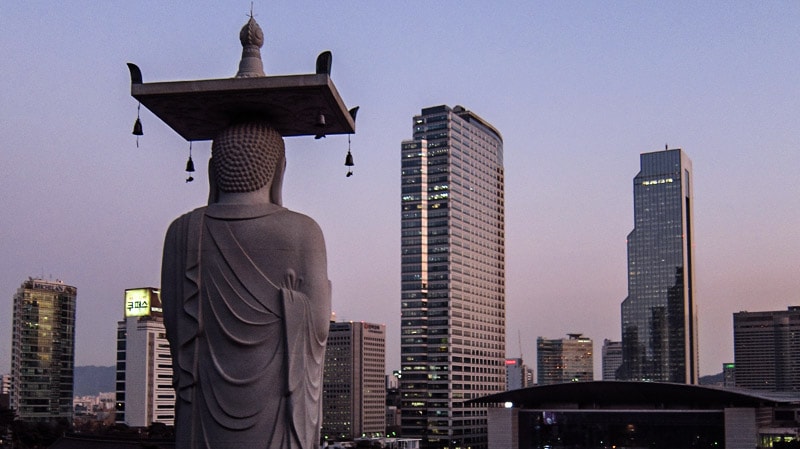
Today, Bongeunsa Temple is a pleasant, interesting, and peaceful retreat. Before the 1960s, the temple grounds were surrounded only by the countryside with farms and orchards. Since then, the area has become the center of one of the wealthiest and busiest places in Seoul making Bongeunsa Temple a rather interesting mix of traditional and modern Seoul.
Though still in the city, Bongeunsa Temple respectively features a more secluded and quieter atmosphere than Jogyesa Temple in Insadong. Many of the halls are spread out on a forested hillside.
Twice a day, at 4:10 and 18:40, a percussion ceremony using four instruments is performed by the monks of the temple. This ceremony is meant to save and awaken beings on the ground using the drum, beings underwater using the wooden fish, beings in the sky using the cloud drum, and beings under the ground using the gong.
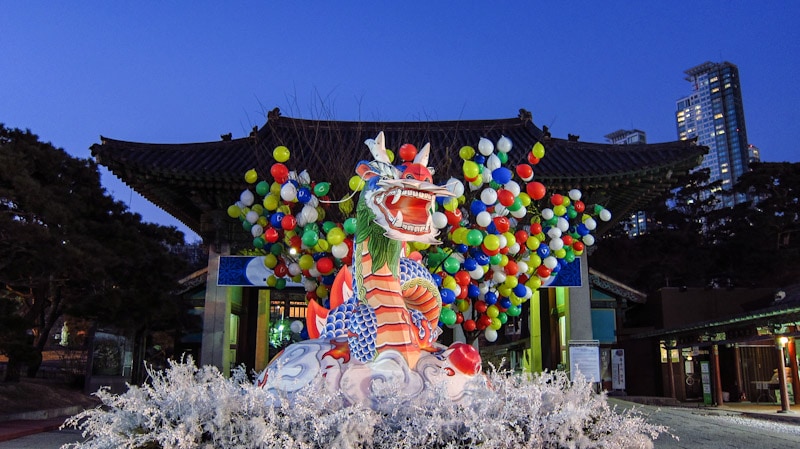
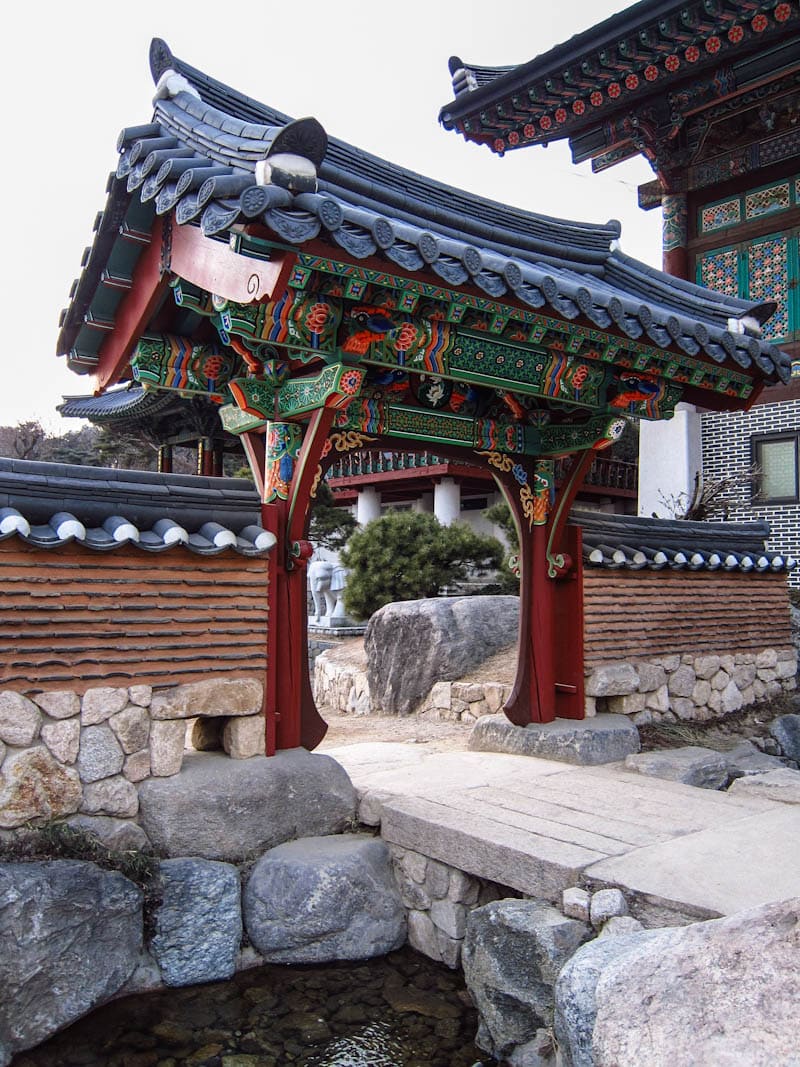
Bongeunsa Temple Information
Hours
Monday - Sunday: 5:00 AM - 10:00 PM
Admission
Free
Address
531 Bongeunsa-ro, Gangnam-gu, Seoul, South Korea
GPS Coordinates: 37.51446, 127.05803
How to Get Here
Option 1
Take Subway Line 2 to Samseong Station (Exit 6).
Option 2
Take Subway Line 7 to Cheongdam Station (Exit 2).
Bongeunsa Temple Video
Map
Official Website
Additional Resources
Viator by TripAdvisor
Viator is a popular online platform that helps travelers book tours, activities, and unique experiences worldwide, including in Seoul. It connects users with a wide selection of options – from sightseeing tours to cultural events and outdoor adventures – all offered by local providers.
Klook
Klook offers discounted tickets and reservations for various attractions and services in Seoul, from theme parks and museums to tours and transportation options.
Rakuten
Save money while exploring Seoul with Rakuten's cashback program. Book your hotels or other services through Rakuten and enjoy cashback rewards and exclusive deals.
If you sign up using the link below, you could earn $30 cashback on your first purchase over $30.
Book Recommendations
For an immersive guide to Seoul, many travelers choose to bring a book along. Fodor's Seoul, for example, offers detailed recommendations on sights, restaurants, maps, and travel tips.
Nearby Sights
COEX Aquarium
COEX Aquarium, inside COEX Mall in Gangnam, is one of the largest aquariums in Korea featuring thousands of fish and sea creatures in 90 different tanks. Visitors to the aquarium, located in the basement of the mall, will be surprised to find over 600 different specifies or marine life and 40,000 plants from Korea and from all around the world.
Museum Kimchikan
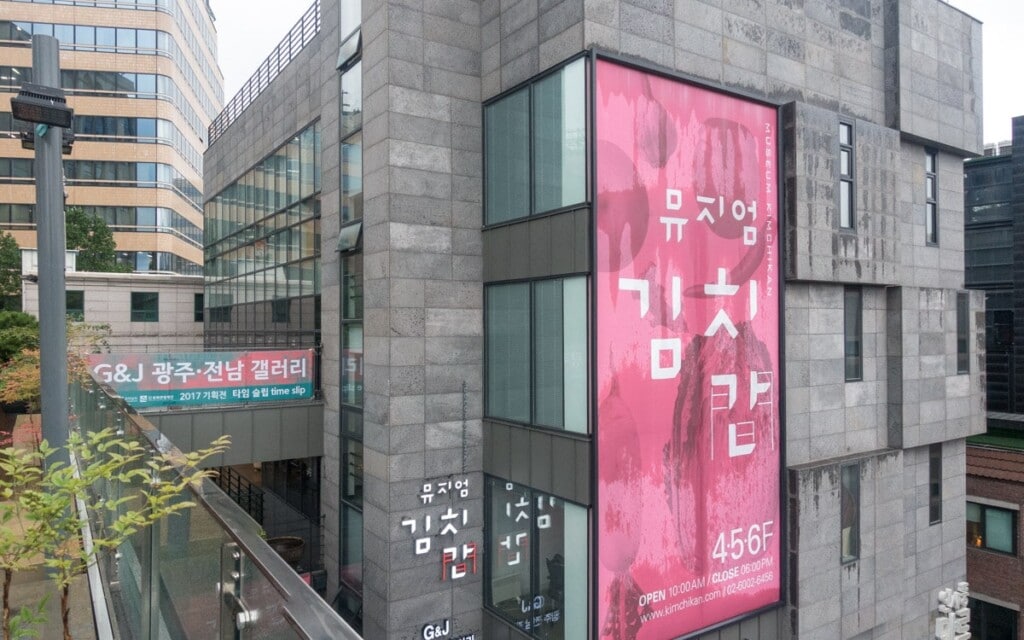
Museum Kimchikan, located in Insadong, features everything kimchi from its history to the many methods of making this popular fermented Korean dish. The museum was first established as the Pulmuone Kimchi Field Museum in 1986 as a way to promote the history of kimchi both in Korea and internationally. In 1988, the museum moved to the Starfield COEX Mall.
Starfield COEX Mall
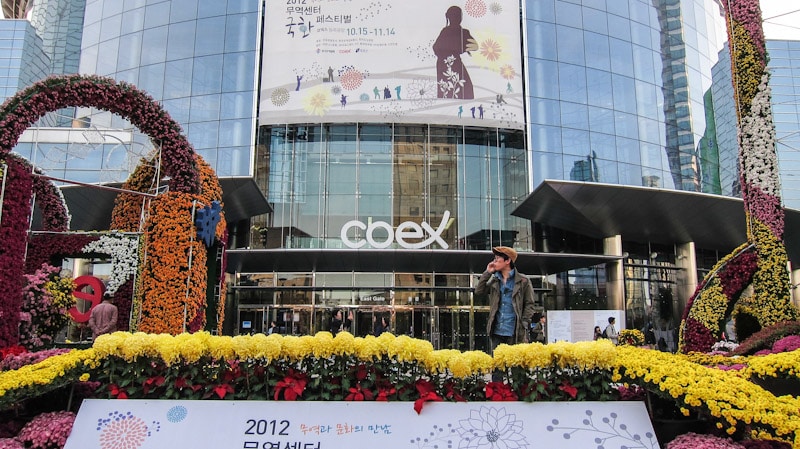
The Starfield COEX Mall is a large underground shopping center located south of the Han river in the World Trade Center Seoul complex in the Samseong-dong neighborhood. At over 85,000 square meters (914,000 square feet) it is the largest underground shopping center in Asia. Over 100,000 people, many of these foreign travelers, visit everyday to shop in one of the 250 stores and dine in one of the over 800 restaurants.
Seolleung and Jeongneung (Seonjeongneung) Royal Tombs
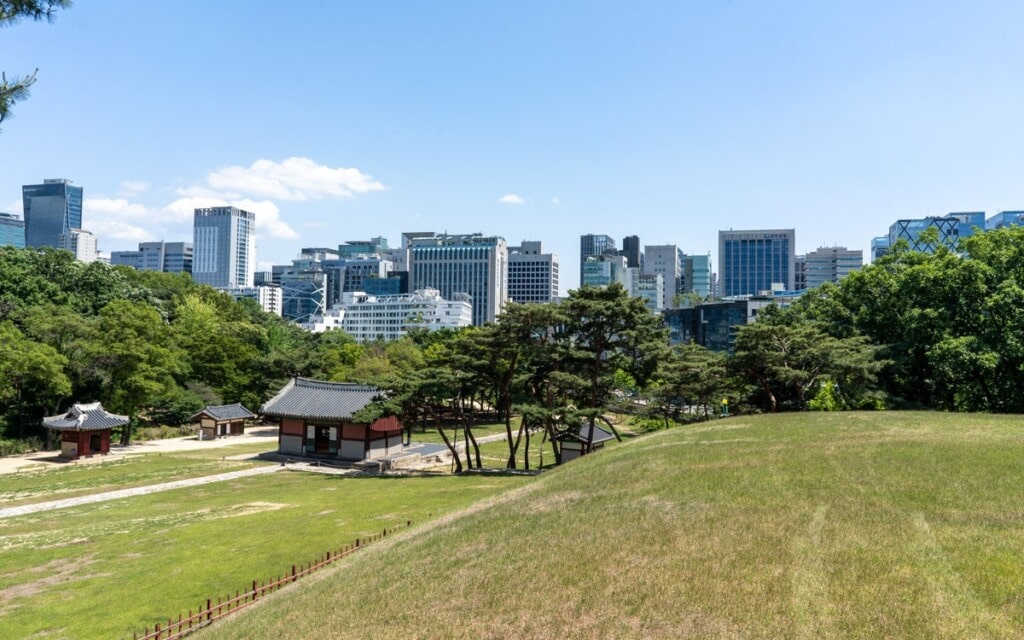
Seolleung and Jeongneung, also known as Seonjeongneung, is the name given to two royal tombs. These tombs are the burial sites of King Seongjong and King Jungjong. Seonjeongneung is surrounded by modern buildings in the middle of the city in the upscale district of Gangnam. Seolleung is the burial site of King Seongjong (1457–1494) and his second wife, Queen Jeonghyeon (1462-1530).
Read more about Seolleung and Jeongneung (Seonjeongneung) Royal Tombs
Jamsil Baseball Stadium
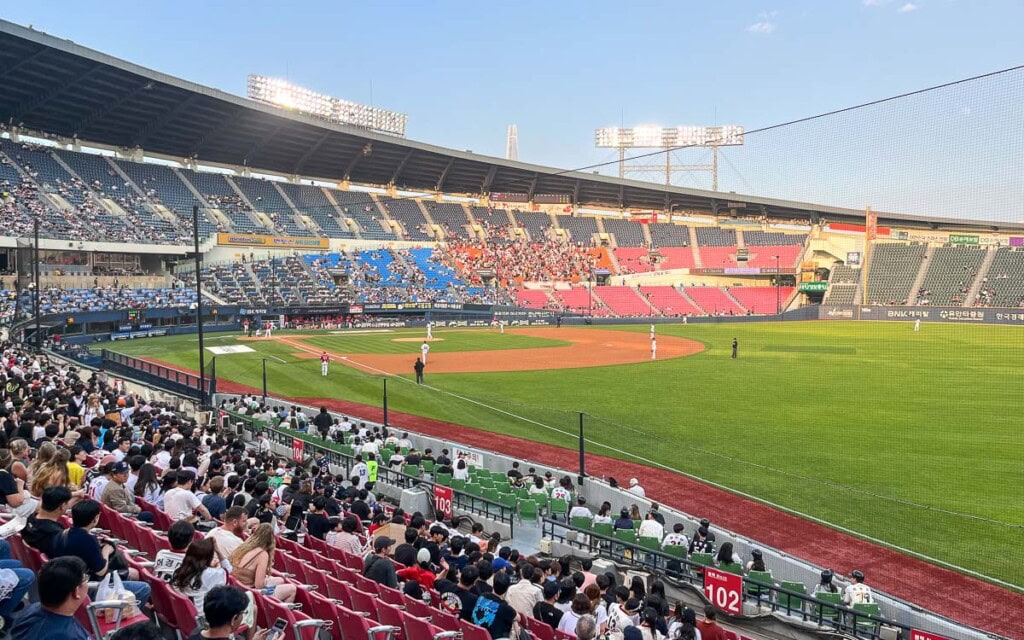
Jamsil Baseball Stadium is a baseball stadium in the Songpa District of Seoul, Korea. It is the home of the Doosan Bears and LG Twins. The stadium and the nearby Seoul Olympic Stadium are part of the Seoul Sports Complex. When it opened in 1982, Jamsil Baseball Stadium was Korea's first baseball stadium.
Dosan Park
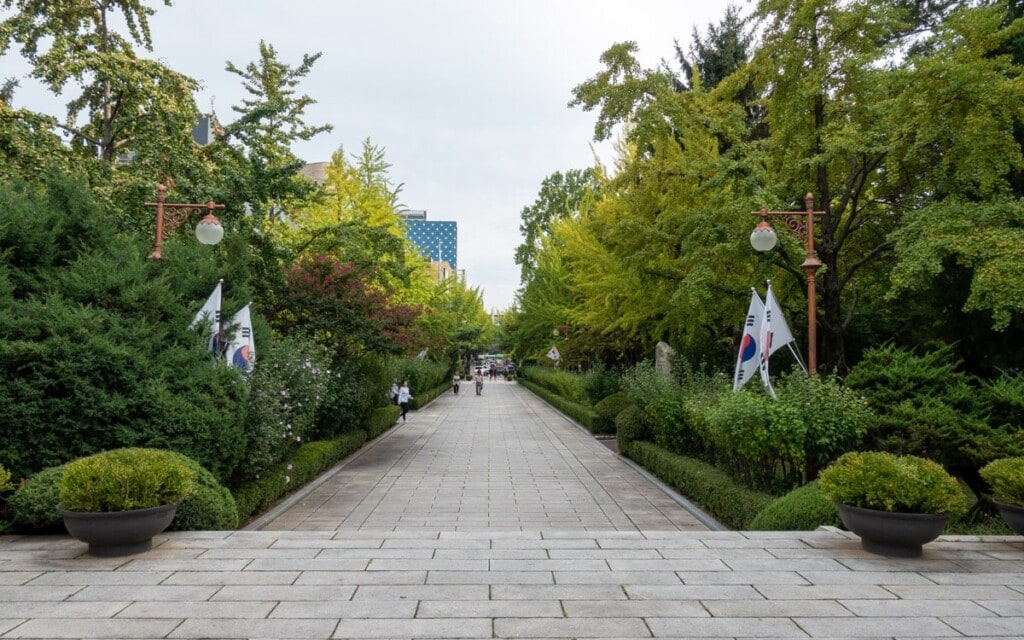
Dosan Park is a park and memorial dedicated to the life and achievements of independence activist An Chang-ho, who also went by the pen name Dosan. The park first opened in 1973 in Sinsadong. It covers 29,974 square meters (322,637 square feet). Sights here include the Dosan An Changho Memorial Hall, the tomb of Dosan and his wife Helen (Hye Ryon Lee), multiple statues, and walking trails.
Last Updated on Mar 14, 2025